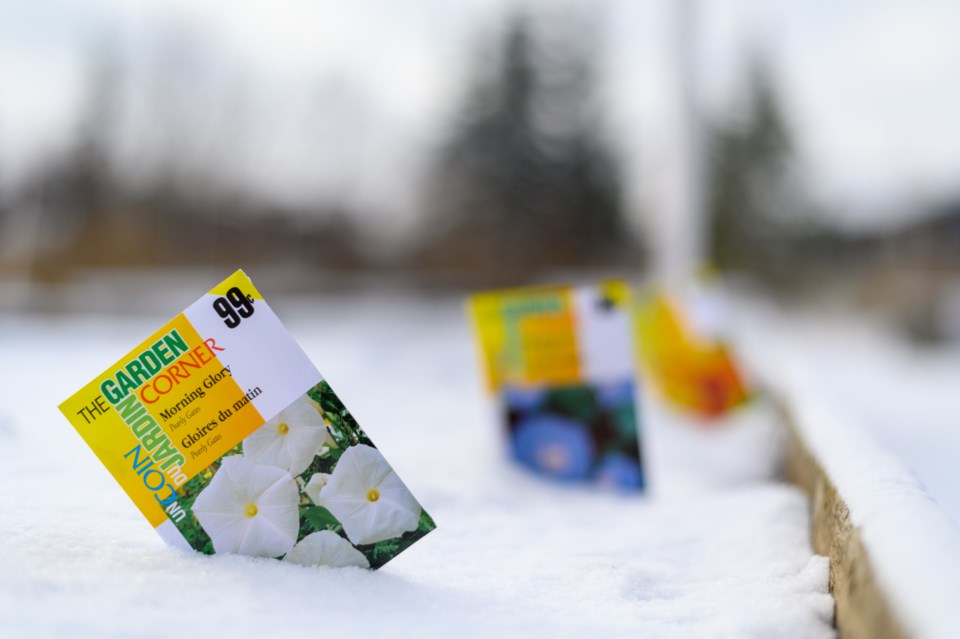COCHRANE— It’s springtime, and the recent spell of warm weather probably has the green thumbs in the community anxious to get seeds in the ground.
But it may be a little too early to begin planting, said Andrea Blonsky, chair of the Cochrane Community Gardens Society.
“We have such a tight window of opportunity to get everything in in the spring. If you don’t get it in early enough you aren’t going to get any harvest or you’re not going to get any blossoms by the time we get adverse weather in the fall. But equally, if you start too early, you’re going to get that damage early on,” she said. “Around here you have to be aware of the fact that we can have frost any time of the year.”
The unpredictable weather through May and June can often lead to unexpected frost damage to vulnerable plants, and steps must be taken to protect your plants.
“If you are going to be planting anything that might be frost sensitive there are two ways of looking at it. You can plant it early, and then if you have a spring frost you can cover your plants and protect them, but then you run the risk of frost damage in early fall, either in late August or early September,” she said.
She said the unpredictable weather makes it challenging for every grower and it is a good idea to pay attention to the weather forecast so you can take frost precautions.
However, planting early might be the better option, depending on what you’re growing, Blonsky said.
“It’s easier to cover small little seedlings than it is to cover massive plants in August."
If you are planting early, you have to ensure that your soil temperature is warm enough to encourage seed germination, or your plants will not begin growing.
Ideal soil temperature is different for different plants. There are many frost-tolerant plants, like lettuce and spinach that can be planted earlier than a frost-vulnerable plant, like tomatoes.
The soil reaches that point typically around the May long weekend, which is a popular planting time for Canadian gardeners.
As the snow melts you might also be tempted to clean up some of the debris left from last fall, like leaves and plant stocks on the ground.
Blonsky said it is important to leave the leaf cover until temperatures stabilize as well.
The cover gives many beneficial insects habitat they need while they are in diapause, the insect version of hibernation.
Resist the urge to clear your yard until temperatures are consistently above 10 C, Blonsky said.
“As long as your day-time highs are consistent, then what we see is those insects are emerging from that quasi-hibernation,” she said. “Then if you disturb their habitat, they will be able to find alternative accommodations.”
Many of those insects making use of that habitat are either pollinators, like butterflies, or beneficial predators, like ladybugs, which will keep your garden free of problematic pests.
To keep yourself busy before growing season officially begins now is the perfect opportunity to clean your gardening tools and pots.
Keeping your gardening tools and reused pots clean is a crucial step in protecting your plants.
A naturally occurring fungus in the soil can cause seedlings to rot if they are grown in imperfect conditions— A process called “damping off”— And keeping your tools clean is a great way to minimize the chances of this process from happening.
Hot soapy water works well for cleaning, and so does a one to nine bleach and water solution, or a three per cent hydrogen peroxide solution.
Ensure you rise the tools and pots well before using them.
“Seedlings are very particular, so you don’t want them to be too wet, or too dry. Nor do you want them to be too hot or too cold, because damping off can definitely be set off by cool temperatures,” she said. “If you’ve got that microorganism on the surface of your tools, or on the surface of your container or vessels, it could potentially affect you for the next year’s growth. By cleaning your plant pots, you minimize the risk.”
The growing season is fast approaching, and the Cochrane Community Gardens Society is always sharing new tips to keep your garden in peak condition. Follow them on Facebook for more information




